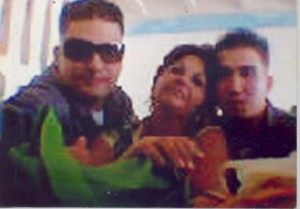
On Saturday September 11th at 11:29 a.m. Cubacel sent me a message to my cell phone: “To love justice is to defend the five …” As Cubacel is a communications company the slogan seemed too political to me, almost surreal as it is referred to the Cuban spies of the Wasp Network, convicted in the United States in 2001.
Since that time the island government has imposed on us a fictionalized version of the life and miracle of the spies, converted by the media into “heroes imprisoned by the empire” where “they fought terrorism and the Miami mafia.”
I will not comment on the amazing metamorphosis of secret agents turned into “pacifists”; the publicity campaign is too expensive for the national economy and for the public’s intelligence. I will refer, however, to five prisoners of the Castro regime who are serving sentences in Havana, although they neither persecuted nor killed killed anyone, nor used state resources on futile missions against our exiles in the United States.
I am speaking about 5 of the 11 youths who, on April 3, 2003, attempted to divert the boat Baraguá from Havana Bay to Florida. When they ran out of fuel at sea they were surrounded by soldiers who ordered them back from the port of Mariel, where were delivered along with the frightened passengers, who were unharmed and moved by the adventure.
There they received a surprise visit by the Commander-in-Chief, who asked some questions and assured them: “This is a cake and everyone is going to eat their little piece.” The cake was distributed five days later by the Havana Provincial Court, which sentenced to death Lorenzo Enrique Copello, Barbaro Lodan and Jorge Luis Martínez Iza, who were executed on 11 April.Wilmer Ledea Pérez, 19, got a 30 year sentence, while Harold Alcala Aramburu, Ramon Henry Grillo, Yoanis Tomas Gonzalez and Maikel Delgado Aramburu are serving life sentences in Area 47 of the Combined del Este prison, known as the Corridor of the Dead.The rest of those involved have already left prison.
The chronicle of the event is more complex and even goes through the race issue, as the three who were shot were black, although Ramón Henry and Yoanis Tomás are also black and they survived. The summary trial, ordered by the Commander-in-Chief to intimidate those who plan a maritime exodus, did not take into account that those involved were neither criminals nor opponents of the government. Of the 11, only 2 had criminal records, one for “a siege to tourism” and another for a drug case.
Last week I spoke by phone with three of these young prisoners, the mother of two of them and the aunt and sister of Maikel Delgado and Ramon Henry Grillo. None of the five have been made into heroes and martyrs, nor are they proud they tried to divert a ship to escape the island, but they think are victims of intolerance and the subordination of the courts to the Party and Government, which has been led by the Castro brothers since long before they were born.
In the next article we will see what happens to these five prisoners of the Castro regime.
September 20, 2010
